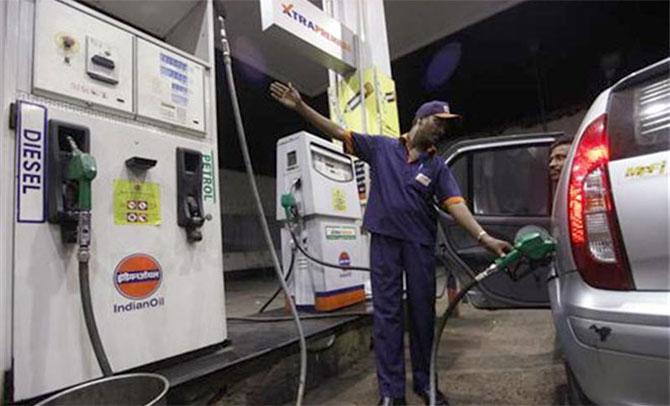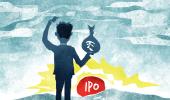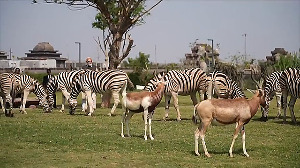Petrol and diesel prices were on Tuesday hiked by 80 paise a litre while domestic cooking gas prices were increased by Rs 50 per cylinder, ending an over four-and-half month election-related hiatus in rate revision, sources said.

Petrol in Delhi will now cost Rs 96.21 per litre as against Rs 95.41 previously while diesel has gone up from Rs 86.67 per litre to Rs 87.47.
Simultaneously, the price of a non-subsidised LPG cylinder has been increased to Rs 949.50 for each 14.2-kg bottle in the national capital.
While LPG rates were last revised on October 6, 2021, petrol and diesel prices had been on a freeze since November 4 as five states including Uttar Pradesh and Punjab went to polls.
LPG prices had gone up by close to Rs 100 per cylinder between July and October 6, 2021, before criticism halted the revision in rates.
Both LPG and auto fuel prices had been on a freeze since then despite the cost of raw material spiralling, first because of demand returning with economies globally rebounding from the pandemic induced slowdown and then due to the Russia-Ukraine conflict.
Non-subsidised cooking gas is the one that consumers buy after exhausting their quota of 12 cylinders at subsidised or below-market rates.
However, the government pays no subsidy on LPG in most cities and the price of the refill that consumers, including the poor women who got free connection under the much-talked Ujjwala scheme, is the same as non-subsidised or market price LPG.
Sources said a 5-kg LPG cylinder will now cost Rs 349 while the 10 kg composite bottle will come for Rs 669.
The 19-kg commercial cylinder now costs Rs 2003.50.
Since June 2017, petrol and prices are to be adjusted daily in line with the benchmark international rate in the preceding 15 days.
But rates have been on the freeze since November 4, 2021, just after the Narendra Modi government cut excise duty on petrol by Rs 5 per litre and that on diesel by Rs 10 a litre to bring down rates from record-high levels.
Most state governments too lowered local sales tax or VAT.
Before these tax reductions, petrol price had touched an all-time high of Rs 110.04 a litre and diesel came for Rs 98.42.
These rates corresponded to Brent soaring to a peak of $86.40 per barrel on October 26, 2021.
Brent was at $82.74 on November 5, 2021, before it started to fall and touched $68.87 a barrel in December.
International oil prices started rising again this year and jumped to a 13-year high of $140 per barrel earlier this month. Brent was trading at $118.59 per barrel on Tuesday.
To compound things, the Indian rupee tumbled to a record low of Rs 77 to a dollar.
India relies on overseas purchases to meet about 85 per cent of its oil requirement, making it one of the most vulnerable in Asia to higher oil prices.
The twin blows of oil prices, already up more than 60 per cent this year, and a weakening rupee may hurt the nation's finances, upend a nascent economic recovery and fire up inflation.
Petrol and diesel prices need to be increased by up to Rs 25 a litre for fuel retailers to cover the losses they incurred when they kept rates on hold despite a rise in the cost of raw material, industry sources said.
Diesel sold to bulk and industrial consumers had already been raised by about Rs 25 per litre, indicating that is the gap between retail pump prices and their actual economic value.
The basket of crude oil that India buys rose above $128.24 per barrel on March 9, according to information from the Petroleum Planning and Analysis Cell (PPAC) of the oil ministry.
This compares to an average of $81.5 per barrel price of the Indian basket of crude oil at the time of freezing of petrol and diesel prices four months ago.
But oil companies are not expected to pass on the entire loss in one go and they will moderate it -- raising rates by less than a rupee a litre every day.
International oil prices have been on the boil ever since Russia put its forces on the Ukraine border.
They spiked after it invaded the eastern European nation on fears that oil and gas supplies from energy giant Russia could be disrupted, either by the conflict in Ukraine or retaliatory western sanctions.
While Western sanctions have so far kept energy trade out, a prospect for a full embargo of Russian oil and products is leading to the latest rally in international oil prices.











 © 2025
© 2025